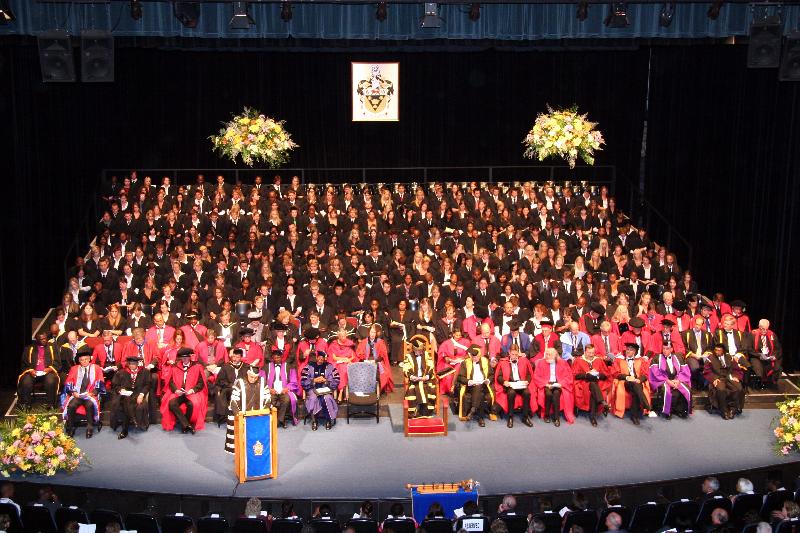
Recently, calls have been made to boycott graduation ceremonies. The reasons for this position are that graduation ceremonies still reflect a colonial order, and that because of the injustices black students suffer during their academic years at the historically white institutions, they must defy by boycotting the ceremony itself. Indeed there is a need to decolonise graduation, and as Fanon asserts ‘decolonisation is a complete calling into question of a colonial situation’. Institutions of higher learning must also be scrutinised so as to detect if there are any remnants of colonial practices within them. The graduation space is obviously not representative of the diverse cultures we have in our country. From academic procession, to bestowing academic qualifications to graduates, there is nothing in the entire process which reflects the African way of doing things. From the song itself Gaudemus igitur, there is nothing inspiring a black African child and making them to feel at home. Therefore the argument to boycott graduation ceremonies is consistent with the spirit of decolonisation.
I however, find it difficult to agree with a tactic of boycotting graduation as I am of the view that other tactics can be employed to disrupt the space, and thereby force it to a direction of transformation. Simply boycotting graduation will do little to effect the necessary changes which must happen in order for graduation ceremonies to be reflective of our diverse cultural practices. Another reason as to why I disagree with the position of boycotting graduation is that, it does not take into cognisance the fact that some students, who graduate, are the first generation of academics in their families. Therefore to boycott graduation will be a self-centred approach especially when ones parents have been looking forward to such a ceremony; to witness their child graduating for the first time. We are not on the same par with our parents in terms of heightened levels of consciousness vis-à-vis the decolonisation agenda, and therefore it becomes difficult to also start explaining the position of why you want to boycott graduation when the rest of students are attending it.
A very effective tactic which the parents can also understand is that of a radical action. The aim of radical action is to go against the established norms. This was recently demonstrated by a Rhodes University graduate, Tholakele Silo during the 2016 graduation ceremony. Silo went to the ceremony wearing traditional IsiXhosa clothing, with her family joining her by wearing African regalia. When she went to the stage to be conferred, she started doing isiXhosa dance and everyone was surprised. The reality is that people were not expecting her to do such a thing because the graduation space has been normalised to the Western ways of doing things. What Silo did was to defy the normative clothing, which for ladies is normally a nice looking dress with high-heels. She affirmed her identity in a colonial defined space and thereby she disrupted the space.
Instead of boycotting graduation and thereby allowing White supremacist arrangements to continue unchallenged, I would rather opt for a tactic which will allow me to affirm my identity in such a space. As a radical action, this tactic can go a long way in questioning the essential assumptions, foundations or values which have been characteristic of graduation for a long time. If it can be done by a collective of students, each affirming their cultural identity by refusing to adhere to the diktats of white values; then it can be a successful programme which will make sure that the old practices are brought under heavy scrutiny in terms of their relevance for this dispensation. This tactic cannot and must not be seen as an end in itself, but rather as means to an end which is to successfully decolonise institutions of higher learning, and that the former historically white institutions may cease to be just universities in Africa to being truly African universities. This position is not antagonistic to a position which says graduation must be boycotted; all of us agitate for a decolonised higher education system. However, it simply wants to argue that we must choose effective tactics which can allow us to disrupt white spaces and affirm our identities. At the end of the day we as students who are pushing for decolonisation all want to see a complete overhaul of the status quo in these institutions of higher learning. However, we differ on tactics and we must think seriously about effective ways of decolonisation, and in my view, cultural resistance is one of the effective ways of removing the remnants of colonialism and permanently dump them in a dustbin of history.
